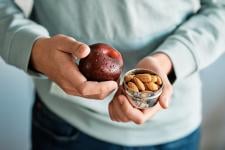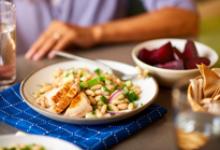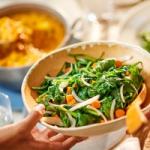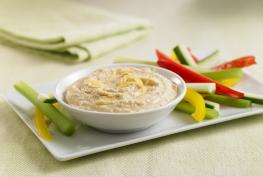Snacks are a part of your eating pattern. Much of the food you eat can come from snacking, and some people may snack during the day instead of eating traditional meals. It is important to develop healthy habits when it comes to snacking.
On this page
Why healthy snacks are good for you
You can enjoy snacks as part of your day. If you make healthy choices, snacks can:
- keep you energized
- help support good health
- provide important nutrients
- be an important part of daily eating habits
- help satisfy your hunger between mealtimes
Young children can benefit from snacks as they:
- have small stomachs
- may have trouble eating all of the foods they need at mealtime
3 ways to practise healthy snacking
Keep these behaviours in mind to practise healthy snacking.
- Choose healthy snack foods
Follow the healthy eating recommendation to make it a habit to choose a variety of healthy foods for your snacks.
Follow the healthy eating recommendation to limit highly processed snacks.
- Eat your snacks mindfully
Eat your snacks slowly and without distractions, such as watching TV.
Choose small portions. Serve a small amount for your snack and try not to eat directly from large containers.
Eat snacks when you feel hungry, and not just out of routine or when you feel:
- tired
- bored
- emotional
Too much snacking can lead you to eat more than you need.
- Think about your snacks ahead of time
Think about healthy snacks when planning your meals and add them to your grocery list. Follow the healthy eating recommendation to help make it easier to plan ahead.
Ideas for healthy snacks
Here are some easy ways to eat healthy snacks when you are at:
- work
- home
- school
- on-the-go
Prepared in advance
Try preparing snacks in advance to save you time:
- Chop extra vegetables when cooking so you’ll have some for snacks.
- Make muffins or homemade granola bars and store them in the freezer.
- Hard-cook eggs on the weekend. They will keep for a week in the fridge with the shell on.
- Make your own trail mix. Take whole grain cereal and nuts and seeds and toss them together.
Grab and go
Here are some travel friendly options you can bring in your bag:
- roasted chickpeas or nuts such as almonds, cashews, soy nuts or peanuts can be kept in your bag for when you feel hungry
- keep cut up vegetables such as carrots, cucumbers, celery and peppers in the fridge and bring along in a reusable container
- oranges, bananas and plums are examples of fruit that come in their own natural packaging that makes them easy to transport
For work and school
Keep healthy options with you at work. Try:
- apples
- oatmeal
- nut butter
- canned fruit
- canned tuna
- plain popcorn
- whole grain crackers
- nuts, pumpkin or sunflower seeds
Make sure to keep snacks like lower fat yogurt or lower fat cheese in the fridge or in a cooler bag with an ice pack.
At home
Try these snack ideas at home:
- whole grain toast with nut butter and banana
- green leafy salad with orange sections and almonds
- lower fat yogurt topped with frozen berries and walnuts
- lower fat cheese and whole grain crackers with cherry tomatoes
- sliced cucumber and red pepper with hummus or lower fat yogurt dip
- whole grain crackers topped with lower fat cottage cheese and peach slices
- whole grain English muffin topped with apple slices and melted lower fat cheese
- whole grain cereal with fruit slices and milk or unsweetened fortified plant-based beverage
Make a healthy choice
What you eat on a regular basis matters for your health.
- Choose foods that have little to no added sodium, sugars or saturated fat.
- Compare the nutrition facts table on foods to choose products that are lower in sodium, sugars or saturated fat.






